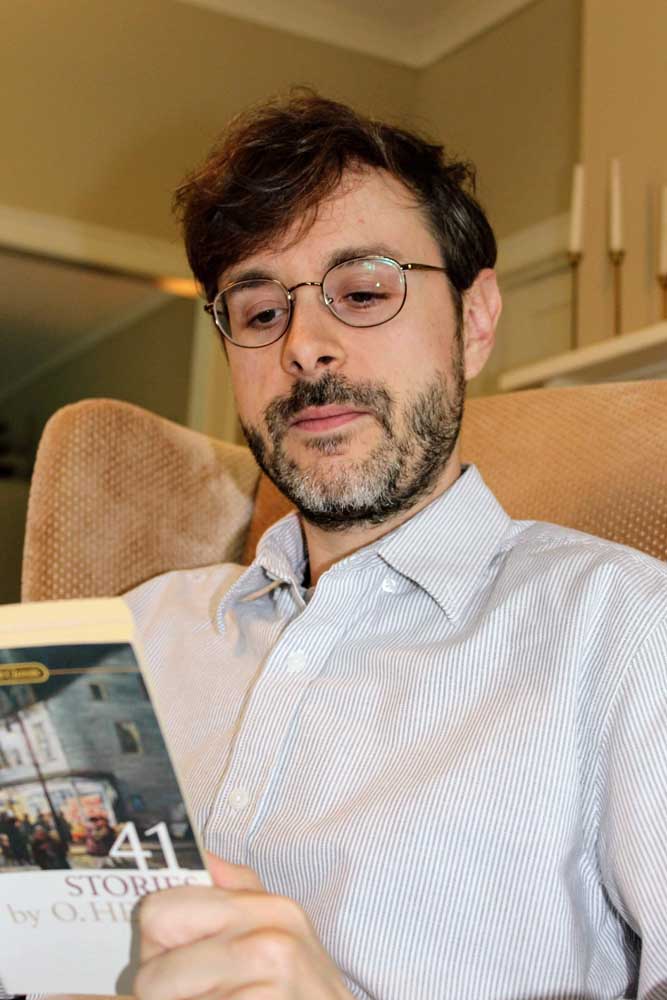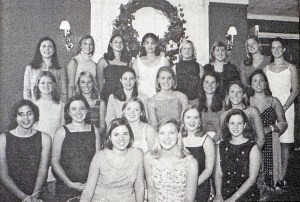The Bookshelf: Author Spotlight: Kathryn Hill
Published 2:00 pm Saturday, October 21, 2023

- Brian Latour
Write what you know. and today’s author (a graduate of the Atlanta Law School) certainly did so in her debut novel titled “Express Malice.” It’s described as “an enthralling legal thriller that takes the reader into the twisting labyrinth of the criminal justice system, the deep recesses of a woman’s heart and a maelstrom of dark desire, violence and danger.”
Enjoy the question and answer session I conducted with Kathryn Hill who expounded on her works and life.
Trending
Prompt: Tell us about your writing process and the way you brainstorm story ideas.
Hill: For “Express Malice” I began with an outline of the story I wanted to tell, then I created names for the characters with what I envisioned them to be. Storytelling comes pretty naturally to me. Growing up, my family traveled in a Ford station wagon, and then a 1964 Travco around the country. My uncle and his family lived in San Francisco so every couple of years we would make a cross-country trip to California.
My mother would tell us wonderful tales of Yellowstone, the Grand Canyon, the Painted Desert, Reno, Salt Lake City, Santa Fe, Memphis and Disneyland. My mother would later sit on her front porch swing with my youngest son and as cars passed along the road she would tell him a story about the person driving the car and its passengers (as if she really knew them.)
I do a lot of research when I write. I want to fully understand the subject and be knowledgeable. I research illnesses, blood types, diseases and drugs before I actually attach them to a character. I want to be able to discuss what I write about with my audience.
Usually I’m writing when I can’t sleep. I simply close my office door and can write for hours, usually spending more time re-writing because my first drafts always require edification.
Writing “Express Malice” took years. So many in fact, I had to go through the entire book and update it, changing phone booths to cellphones, cassette tape answering machines to voicemail, fixing street names, etc. I wrote that book as a hobby actually, wanting to put a story together from scribbles on pieces of notebook paper, napkins, the back of used envelopes and a journal that I kept. I am not a dedicated writer. I only write when I can’t get a story or thoughts out of my head.
Trending
Q: What is your inspiration for writing?
Hill: I write about things I know or experience. I literally grew up in the legal field, I started working for an attorney when I was 15 years old answering the phone as an after-school and summer job. Later he became a judge and I worked at the courthouse. The legal system was fascinating, there wasn’t much I didn’t see working in that environment, and, oh the people I met. Back then, lawyers weren’t “out of a box” — the lawyers and the judges all had personalities that preceded them and some were real characters! My short stories are quips or comments on life from my perspective; they are my opinions or life lessons that I’ve experienced.
Q: Do you believe in writer’s block?
Hill: I’m certain many people have writer’s block but I always seem to have something to say. I recently suggested to my husband that we get tickets to see Sean Dietrich perform in Chattanooga. He asked me who Sean Dietrich was and I told him he was a columnist and a Southern storyteller, his response to me was “Why do you want to pay money for that when I listen to a storyteller 24 hours a day?”
Q: How did you celebrate the publishing of your first book?
Hill: It was terrific! Two of my dear friends wanted to do an invitation-only book signing. They put together a collection of wines that were appropriate for the book: “Conundrum, Liberty, The Guilty, Sweet Justice and the Innocent.” About 75 folks gathered for an afternoon of great storytelling, wonderful food and drink, it was quite a “book opening.” I was so flattered!
Q: What other authors are you friends with and how do they help you become a better writer?
Hill: I know a lot of artists — writers, painters, sculptors — we support one another with encouragement, ideas, conversation about the subjects we are working on, criticism when needed and always a listening ear.
I lost a friend a while back, Evie Sweet Hurd. Evie was a scholar, an academic, and penned several books. She was always critical of my writing but through that criticism I learned that not every book is for everyone. My books and writings have “Southern” all over them. On the other hand, I love the uplifting short stories from my friend, Wayne Kerr. He always has encouraging words when life throws us curve balls. Chattanooga artist Eve Oldham and her writer husband John Harris have been supportive and encouraging since the day I met them. When John wrote his book “Blue Ghost: Reveille” about his time in Vietnam, I was honored when he asked me to read the draft.
Q: If you were given the opportunity to form a book club with your favorite authors of all time, which legends or contemporary writers would you want to become a part of the club?
Hill: Tatiana de Rosnay, who wrote “Sarah’s Key,” she has such a great way of telling her stories; John Grisham, of course; Lewis Grizzard, a hometown boy that brought a smile to my face each morning as I read his columns in the Atlanta Journal-Constitution; Tom Clancy, with his intrigue and detailed stories of espionage; and Pat Conroy — through his words I can always feel the soft Southern breezes as I turn each page.
Q: How do you think the concepts such as Kindle and ebooks have changed the present or future of reading?
Hill: I really can’t tell you how the future of reading will change with these devices and downloads, but I can tell you that I would miss the security I feel with actual books in my library. I want a physical book that I own without plugging in a device and charging it; I want to be able to take a book off a shelf and share the history of that book with a friend — where it came from, where I read it, how I learned about it — that book has history, not like a Kindle. I feel the words in a book lose something in translation when they appear as a download.
Q: What marketing strategies do you find most helpful?
Hill: I have found that developing a website and speaking at book clubs is great marketing. I love attending book clubs and meeting people, telling them about my writing. One book club leads to another and that means book sales. I have been as far as Colorado for a book club meeting.
Recently I was invited to be the guest speaker for a group of 200 retired Delta flight attendants (all of whom bought my book) in Atlanta, that came from meeting one of the gals at a book club in Eatonton, Georgia. Networking is a great tool for writers — be involved in your local library (you know, where the actual readers hang out). Also, try Amazon, they have staff that will help you through the process of selling and marketing.
Q: Can you tell us about your current projects?
Hill: I have written a collection of short stories that will be out very soon and I am currently working on a sequel to “Express Malice.”
Q: Any advice you would like to give to aspiring writers?
Hill: Everyone has a story to tell. Write it, re-write it and write it again, each time will be an improvement. Write what’s in your heart. Research publishing companies. Don’t take no as an absolute. Give your story to anyone that is interested and ask them for an honest opinion; be willing to take criticism, it will help.
• Hill maintains the website expressmalice.com. You can leave her a comment, ask a question and purchase “Express Malice” in print format with free shipping on any order.
And “Express Malice” can be checked out with your PINES library card.
Brian Latour is the branch manager of the Chatsworth-Murray County Public Library.





